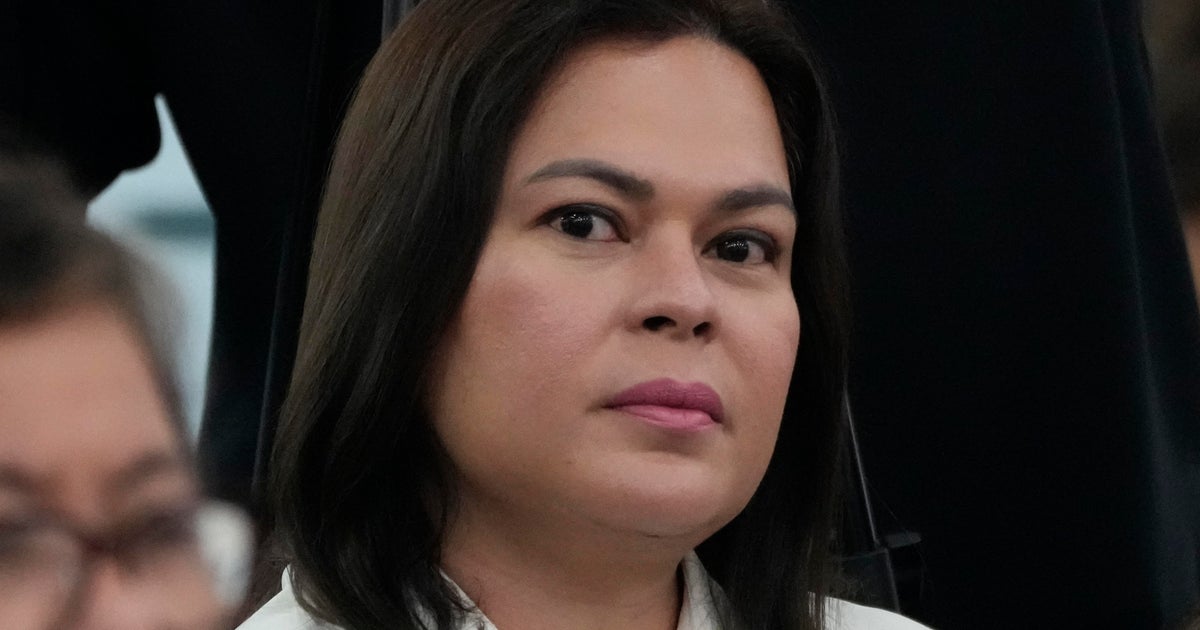Michigan's Democratic governor works on plan to reopen state with GOP legislature
Michigan Governor Gretchen Whitmer has garnered national attention for leading her state's response to the coronavirus, but she's facing mounting pressure to reopen the economy. As she navigates her response to the virus amid speculation that she's being considered to be Joe Biden's running mate, she faces another challenge: working with a Republican controlled legislature that is impatient to lift restrictions in some parts of the state.
Last week, the state's Senate Republican leader, Mike Shirkey, offered a plan to ease restrictions in waves. And this week, Michigan House Speaker Lee Chatfield, a Republican from northern Michigan, pitched a regional approach based on risk factors in each county. A bipartisan group of state senators is also working on a proposal.
"We think we can prioritize public health and be reasonable in our approach to fighting COVID-19," Chatfield said in an interview with CBS News on Monday. "I don't think the state of Michigan has done that yet, but that's what our plan does."
By Tuesday, Michigan had 32,967 confirmed coronavirus cases and 2,700 deaths, the third highest in the country. But plans on how and when to loosen restrictions and to reopen parts of the economy have become more politicized.
Chatfield stressed that he doesn't want the coronavirus response to devolve into partisan bickering, given the toll the virus has already taken on Michigan. He wrote a letter to Whitmer over the weekend urging Michigan to classify things "safe" or "unsafe" rather than "essential" and "non-essential" and to set restrictions based on regional circumstances rather than a one-size-fits-all approach.
"There is a lot of built up frustration around the state because people are being told they can't take care of their family, and they may be a low risk individual in a low risk area," Chatfield said.
What happens next could test Whitmer's ability to work with Republicans who have criticized her most recent "Stay Home, Stay Safe" executive order, which banned travel to vacation homes and restricted the purchase of some items.
The current stay-home order and state of emergency expire at the end of the month, but the next steps are not entirely clear. Under the Emergency Management Act of 1976, Whitmer would need legislative approval to extend the state of emergency in order to continue issuing executive orders like "Stay Home, Stay Safe."
"Any extension of a state of emergency would require legislative approval," Chatfield said. "What we do will be largely dependent on what steps the governor takes from now until then."
But a separate emergency powers law from 1945 makes no mention of the need for legislative approval for the governor to "promulgate reasonable orders, rules, and regulations as he or she considers necessary to protect life and property or to bring the emergency situation within the affected area under control."
Whitmer indicated in a briefing on Monday that details of her next steps to re-open Michigan could come this week.
The public health crisis took a partisan political turn two weeks ago when Whitmer issued the current stay-home order, which led to protests organized by conservative groups at the state capitol in Lansing.
As her efforts to combat the virus have received national attention and praise, President Trump has derided her as "that woman in Michigan." Whitmer and Trump have publicly differed on the best way to address the pandemic. She recently asked Vice President Pence to urge the Trump administration to back up governors' orders for citizens to stay home in the aftermath of protests at state capitols and Trump's tweets to "liberate" Michigan and two other states that are run by Democratic governors.
Despite the vocal criticism from the president and some Michiganders, a Detroit Regional Chamber poll, conducted after the new order was implemented, showed 57% of Michiganders approve of Whitmer's handling of the coronavirus pandemic. Meanwhile, President Trump received an approval rating of 44% in the same poll.
In a Pew Research poll released last week, two-thirds of Americans surveyed expressed concern that state governments would ease restrictions on public activity too quickly.
Whitmer weighed in on the GOP plans at a briefing on Monday, and noted that there are "good ideas" in the proposals that will be taken into consideration. She also acknowledged the looming deadline, saying she wants the legislature to be "partners in this."
Whitmer signaled on Tuesday that she has her own ideas to "slowly re-engage" sectors of the Michigan economy to keep "employees and our customers safe."
"We need to build alliances and I welcome all input, no matter where it comes from," Whitmer said in a Washington Post Live interview on Tuesday. "But at the end of the day, the most important voices, I think, helping us direct and phase this in safely, are those of our health care experts."
Michigan's Midwestern neighbor across Lake Michigan, Wisconsin, highlights some of the difficulties Democratic governors can face. Wisconsin's Democratic governor Tony Evers was also elected in 2018, but Republicans retained control of the legislature.
On Tuesday, Republican leaders in the legislature asked the Wisconsin Supreme Court to block an extended "Safer at Home" order that runs through May 26. They've also criticized Evers' plan to reopen the state. That proposal has a similar approach to the White House guidelines: opening the state in three phases based on a downward trend of coronavirus cases and hitting benchmarks such as increased testing, more contact tracing and ensuring enough hospital capacity.
"We continue to call on the governor to retreat from his one-size-fits-all approach and allow the state to safely open up regionally so people can get back to work," Wisconsin Speaker Robin Vos and state Senate Majority Leader Scott Fitzgerald said in a joint statement on Monday.
Conversations with multiple longtime political allies of Whitmer portrayed the governor as someone who is not overly partisan, but who won't back down from a political fight. But allies also said Whitmer is not afraid to confront a problem and will listen to experts and opponents alike to collaborate on the path forward on an issue, like the coronavirus threatening the state now.
Robert McCann, who served as Whitmer's chief of staff for part of her tenure when she served as the state's Senate Democratic Leader, told CBS News "she's not looking for political fights right now."
"That's not something she's ever sought out as long as I've known her," McCann said. "What she sought out is people that are willing to work with her and willing to, you know, to show responsible leadership at times like this."
"If people aren't willing to do that, then the best thing they can do is get out of her way because she doesn't back down from fights easily," he said.



